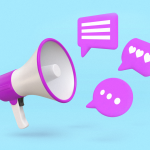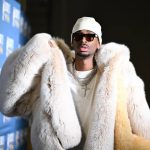Gatorade’s roster of sponsored athletes runs deep, and it started with the GOAT himself: Michael Jordan. The brand’s second athlete was Mia Hamm, who appeared alongside Jordan in a 1997 ad set to “Anything You Can Do (I Can Do Better),” where the two squared off in soccer, basketball, and other sports.
“We were putting, I believe for the first time, a female athlete at the same stature as, ultimately, the GOAT in basketball,” Mark Kirkham, CMO of international beverages at PepsiCo, told Marketing Brew.
Gatorade and PepsiCo were among the most active nonalcoholic beverage brands in women’s sports by number of sponsorships last year, according to SponsorUnited, with deals in the LPGA, WNBA, NWSL, and Australian women’s rugby league. The parent company did a total of 44 deals, per SponsorUnited, including 30 for Gatorade alone.
Within women’s soccer, Gatorade has continued to work with stars from Abby Wambach to Mallory Swanson. It partners with teams including Angel City FC and OL Reign, and also activates around the sport at a more grassroots level.
PepsiCo’s beverage division isn’t a sponsor of this year’s FIFA Women’s World Cup, which kicks off on July 20; Coca-Cola has been an official sponsor of the event since 1978 and has a standing partnership with FIFA through 2030.
Kirkham said PepsiCo and Gatorade are still deeply invested in soccer, including the women’s game. Ahead of this month’s World Cup, we talked to Kirkham about the company’s approach to women’s sports.
This interview has been edited for clarity and length.
How do you hold a brand accountable for maintaining a somewhat equal gender split in sponsorships? (Editor’s note: Figures regarding the breakdown between PepsiCo’s investments in men’s and women’s sports were not available.)
Taking an equal approach is about ensuring that you’re looking at the opportunity from a consumer standpoint…If your brand’s job and role is to elevate sports, fueling athletes in their sport, and the athletes are now much more diverse and much more equal, then you need to take that same investment. There were days 50 years ago that I’m sure most brands were only focusing on male sports. If you want to be relevant in sports today, you can’t do that. It’s not an equation.
Get marketing news you’ll actually want to read
The email newsletter guaranteed to bring you the latest stories shaping the marketing and advertising world, like only the Brew can.
Why is soccer such a focal point for Gatorade?
It’s the largest participation and the largest watched sport in the world. In the US, obviously, we have huge assets in the NFL, we have assets in hockey, baseball, it’s across almost all sports…Internationally, soccer is the focus, but you’re seeing more focus on soccer in the US. The last World Cup, the upcoming World Cup in the US, is obviously driving a lot more association there. The viewership of the Premier League, the performance of US players, both men and women—it’s just changing the role that [soccer] plays.
Gatorade is the most heavily invested in the sports world, but which other PepsiCo brands are engaging with women’s sports?
Pepsi was always known to create these amazing ads not officially associated with any major tournaments, with [David] Beckham and [Lionel] Messi, even 10, 15 years ago. We’ve always been able to tap into culture through storytelling through sport in a Pepsi way…Back in 2014, we started bringing women players into our storyline. We’ve had Lucy Bronze; we had Carli Lloyd in a Pepsi ad shot for international…So Pepsi would be the second…I think there’s a role that each brand can play.
Is there anything you can share about plans for the Women’s World Cup?
The US is a partner with them on the snack side, so there’s a relationship we have there…On the beverage side, we’re less involved…I do think what’s important is, if you’re getting involved in the women’s game, it needs to be more than just sponsoring one tournament or doing one campaign. I think that is probably the most crucial thing to anyone who wants to get into women’s sports commercially, because it becomes a blip. It becomes a one-off. It becomes not part of your long-term vision in sports…We’ve been investing in players and athletes, but it’s that combination of storytelling, investment in education, and particularly with Gatorade, tying it up with key partnerships, and using those partnerships to elevate the narrative. These partnerships have to be more than just about brand awareness. These partnerships have to be about building authentic narratives that can help amplify the women’s game.
Read the full article here










